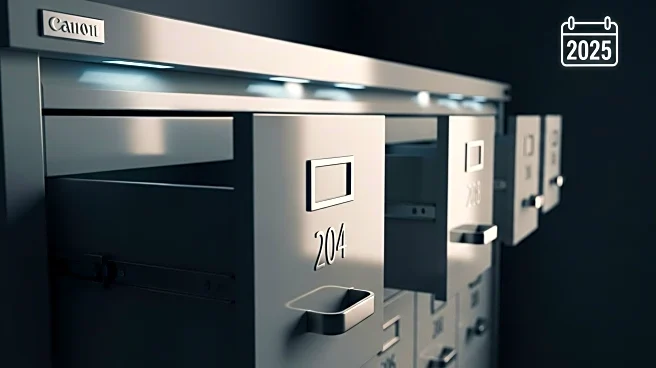What is the story about?
What's Happening?
The IRS has released updated guidelines for filing Forms 1099 Misc, 1099 NEC, and 1099-K for 2025. These changes are part of the One Big Beautiful Bill Act (OBBBA) and include new provisions for electronic filing and reporting thresholds. The guidelines aim to help businesses avoid costly errors and penalties by ensuring accurate and timely submissions. The updates also provide strategies for coordinating with vendors and managing different payment methods to streamline the filing process.
Why It's Important?
Accurate 1099 filing is crucial for businesses to maintain compliance with IRS regulations and avoid financial penalties. The updated guidelines reflect changes in tax reporting requirements and emphasize the importance of proper form selection and submission. Businesses must adapt to these changes to ensure compliance and minimize the risk of triggering IRS notices. The guidelines also highlight the need for effective collaboration between payroll, accounting, and external vendors.
What's Next?
Businesses should familiarize themselves with the new guidelines and implement best practices for 1099 filing. Training sessions and workshops may be necessary to ensure staff are up-to-date with the changes. Companies may need to invest in software solutions to facilitate electronic filing and improve tracking of contractor payments. The IRS may continue to refine reporting requirements, and businesses should stay informed of any further updates.
Beyond the Headlines
The changes in 1099 filing guidelines reflect broader trends in tax regulation and the increasing emphasis on digital compliance. They also highlight the ethical responsibility of businesses to accurately report financial transactions and the cultural shift towards transparency in financial reporting. Long-term implications may include more streamlined tax processes and enhanced collaboration between businesses and regulatory bodies.

















